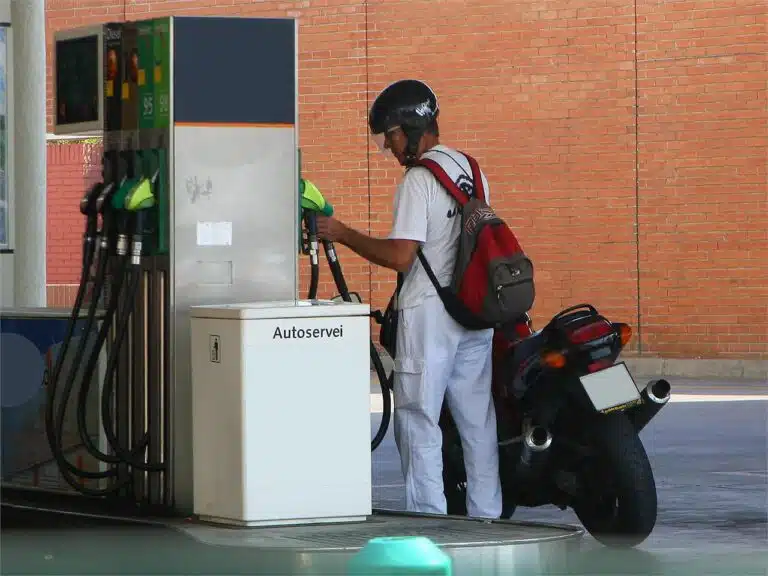Adaptation of public policies to promote the reduction of fuel spending
In a world where sustainability is becoming increasingly urgent, the reduction of fuel expenditure presents a crucial challenge for both governments and society as a whole. The adaptation of public policies is essential to promote practices that not only decrease the consumption of fossil resources but also encourage a more efficient and responsible use of energy. This transformation requires a collaborative approach among different sectors, with the goal of implementing measures that support the transition to a cleaner and more sustainable energy model.
The adaptation of public policies that promote the reduction of fuel expenditure is essential in the current context of climate crisis and environmental change. The implementation of effective measures not only seeks to mitigate the impact of fossil fuel use but also to promote sustainable practices that contribute to economic development and energy efficiency. This article explores various strategies and approaches that governments can adopt to achieve these objectives.
The Importance of Sustainability in Energy Policy
Sustainability has become a fundamental premise in the development of public policies. The drafting of regulations that promote the use of clean energy is key to reducing dependence on fossil fuels. This not only involves the promotion of cleaner energy alternatives but also the design of incentives that facilitate the transition to a more sustainable economy.
Collaboration Between Sectors
The collaboration between the public and private sectors is essential for the advancement of effective policies. Governments must work together with businesses, non-governmental organizations, and communities to ensure proper implementation of policies. Promoting joint efforts will enable the design of initiatives that optimize resources and thus facilitate the reduction of energy expenditure.
Government Initiatives to Reduce Fuel Expenditure
There are multiple government initiatives that are being implemented in various regions to encourage the reduction of fuel expenditure. These initiatives include subsidies for electric vehicles, improvements in public transportation infrastructure, as well as awareness campaigns about efficient driving habits. In addition, setting clear goals regarding energy efficiency is crucial for assessing progress and adjusting policies as necessary.
Incentive Systems for Businesses and Individuals
Incentive systems play an essential role in motivating businesses and citizens to adopt more sustainable practices. By promoting the adoption of clean and efficient technologies, fossil fuel consumption can be significantly reduced. For example, the implementation of verification and recognition of sustainable practices in both the industrial and domestic sectors can result in a significant reduction in fuel expenditure.
Economic Benefits of Reducing Fuel Expenditure
The reduction of fuel expenditure not only has environmental implications but also direct economic benefits. This translates into savings for households and businesses, as well as the creation of new job opportunities in renewable energy and sustainable technology sectors. For instance, studies have shown how the reduction of fuel expenditure can benefit the local economy and social well-being.
Impact of Urban Planning
Urban planning plays a crucial role in reducing fuel expenditure. Cities designed to facilitate public transport use and promote cycling or walking generate a positive impact on energy consumption. Implementing policies that favor the development of appropriate infrastructure is vital to achieving these goals, as detailed in recent studies.
Changing Habits as a Strategy
The adaptation and change of habits in the daily lives of citizens are essential on the path to sustainability. Environmental education initiatives allow individuals to understand the importance of their actions concerning fuel expenditure. The promotion of more sustainable habits, as mentioned in habit changes and their benefits, will help achieve a more responsible use of energy resources.
Best Practices in Vehicle Maintenance
An important aspect of reducing fuel expenditure is proper vehicle maintenance. Implementing a regular maintenance plan helps optimize energy consumption and prolong the life of automobiles. For more details on how good maintenance can help, consult the complete guide.
The adaptation of public policies is presented as an essential tool to address the urgent need to reduce fuel expenditure. In a global context marked by the advancement of climate change and the depletion of fossil resources, it is critical that governments implement strategies that promote sustainability and energy efficiency. These policies should be aimed not only at reducing consumption but also at fostering the use of renewable energies and less polluting alternatives.
One of the most effective strategies is the creation of incentive systems. These mechanisms motivate both companies and individuals to adopt more responsible consumption practices, such as utilizing electric vehicles and using public transportation. Furthermore, it is vital that policies include support measures for research and development of innovative technologies that optimize the use of energy resources.
Collaboration among different sectors also plays a crucial role in this adaptation. The synergy between the public and private sectors can facilitate the development of sustainable projects and the implementation of infrastructures that favor sustainable mobility. Moreover, it is key to educate the population about responsible consumption habits that help reduce energy expenditure.
Finally, it is imperative that policies are based on solid studies and long-term planning. This will allow governments to anticipate and tackle the challenges that arise on the path towards greater sustainability and a future where fuel expenditure is not an impediment to economic and social development.




